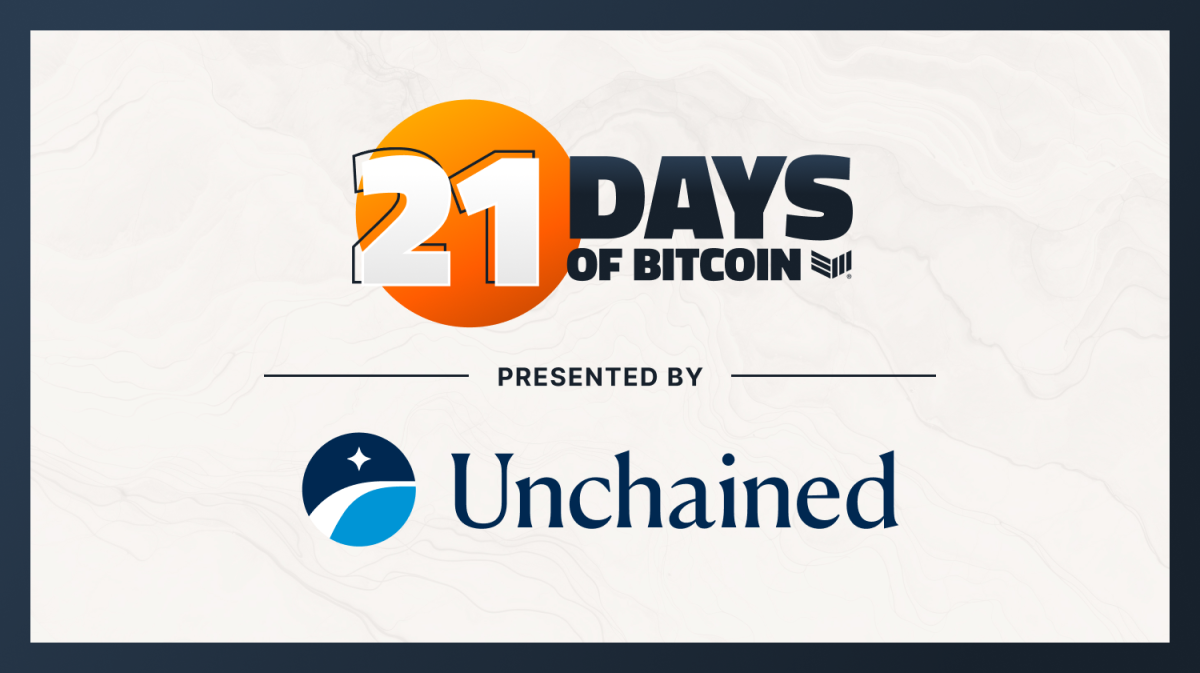Month: March 2024
Bitcoin hits record above $72,000 as demand frenzy intensifies
Post Content
London Stock Exchange To Accept Bitcoin Exchange Traded Note Applications
The London Stock Exchange (LSE) released a “crypto ETN admission factsheet” showcasing its decision to accept applications for Bitcoin exchange-traded notes (ETNs). The move comes as part of the LSE’s efforts to expand its offerings and provide investors with exposure to bitcoin.
JUST IN: 🇬🇧 London Stock Exchange to start accepting #Bitcoin exchange traded note applications pic.twitter.com/h2XmzXqz2f
— Bitcoin Magazine (@BitcoinMagazine) March 11, 2024
Bitcoin exchange-traded notes are financial instruments that track the price of Bitcoin and are traded on traditional stock exchanges. By allowing the listing of Bitcoin ETNs, the LSE would be providing investors with an opportunity to gain exposure to BTC through regulated and familiar investment vehicles.
“The proposed Crypto ETN: (a) is physically backed, i.e. non-leveraged; (b) has a market price or other value measure of the underlying that is reliable and publicly available,” the factsheet stated. “The underlying cryptoassets must be: (a) (i) wholly or principally held in ‘cold storage’3 (i.e. in an offline depositary wallet), which includes cold staking; or (ii) subject to arrangements that achieve an equivalent outcome to cold storage.”
The decision to accept applications for Bitcoin ETNs reflects the growing demand for BTC investments among traditional investors and institutions. As the popularity of Bitcoin continues to rise, traditional financial institutions are increasingly exploring ways to incorporate them into their offerings.
The acceptance of Bitcoin ETN applications by the LSE also highlights the evolving regulatory landscape surrounding Bitcoin. With regulatory clarity improving in many jurisdictions, institutions are becoming more comfortable with offering BTC-related products to their clients.
Earlier this year, the United States Securities and Exchange Commission approved a batch of spot Bitcoin Exchange Traded Funds (ETFs), which turned out of be some of the most successful ETF launches in history. Just last week, these ETFs did over $33 billion in trading volume, according to Bloomberg ETF analyst James Seyffart.
Casual week last week for the #Bitcoin ETFs in the Cointucky Derby. $33 Billion in volume and $2.24 Billion in inflows pic.twitter.com/bHEXG7Pzw3
— James Seyffart (@JSeyff) March 11, 2024
Bitcoin Asset Protocol BRC-20 Appoints New Maintainers
The creator of BRC-20 (Bitcoin Request for Comment 20), Domo, has announced his non-profit foundation is now dedicated to the governance of the BRC-20 protocol. This organization, known as the Layer 1 Foundation (L1F), will collaborate with Ordinals companies such as Unisat and Best In Slot to oversee the protocol’s maintenance, according to a press release sent to Bitcoin Magazine.
“The goal is to support the growth of Bitcoin metaprotocols on Ordinals and beyond,” said BRC-20 Creator, Domo. “BRC-20 was an early experiment—but we’re seeing a wave of standards that need tools, infrastructure and support to thrive. We hope to support innovation on Bitcoin in a fair and market-neutral capacity.”
Unisat and Best In Slot have been appointed as co-lead maintainers of the BRC-20 protocol and its indexer, operating within the governance guidelines set by L1F. Unisat, known for developing the first BRC-20 indexer in partnership with Domo, has played a pivotal role in listing BRC-20 tokens, which recently reached a market cap of $5 billion.
Concerns over the risks associated with a centralized indexer led to the development of a decentralized BRC-20 indexing solution by Best In Slot. The two companies will work together to advance the decentralization of the BRC-20 indexer as co-lead maintainers.
Moreover, Domo has appointed five Ordinals companies to the L1F Oversight Committee, tasked with enforcing governance guidelines for the BRC-20 standard. These companies, including Hiro, Allium, ALEX, Oyl Dynamics, and UTXO Management, represent major stakeholders in the BRC-20 ecosystem.
The Layer 1 Foundation, operating as a non-profit with 501(c)(6) status, aims to advance the development of metaprotocols on Bitcoin beyond BRC-20. It seeks to provide educational resources and tools to support developers across Bitcoin-native ecosystems in attempt to foster innovation in a fair and market-neutral manner.
Disclaimer: UTXO Management’s parent company, BTC Inc., is also the parent company of Bitcoin Magazine. UTXO Management operates separately and independently from Bitcoin Magazine.
Donald Trump Says He “Sometimes Will Let People Pay Through Bitcoin”
Former President Donald Trump spoke to CNBC about his stance on Bitcoin today, revealing that he occasionally accepts Bitcoin as payment. In the interview, Trump acknowledged the growing popularity of Bitcoin and that “its taken its own life.” While Trump did not provide specific details about the frequency or context in which he accepts Bitcoin, his statement underscores the increasing mainstream acceptance of BTC.
JUST IN: 🇺🇸 Donald Trump tells CNBC he “sometimes will let people pay through #Bitcoin” pic.twitter.com/dhbgB2Xep6
— Bitcoin Magazine (@BitcoinMagazine) March 11, 2024
“I sometimes will let people pay through Bitcoin,” the former President Trump stated. “If you think of it, its an additional form of currency. And I used to say I want one currency, I want the dollar, I don’t want people leaving the dollar. And I feel that way but I will tell you it has taken on a life.”
Trump’s acknowledgment of Bitcoin as a payment option comes at a time when more businesses and individuals are embracing Bitcoin as a store of value and a medium of exchange. Despite his past skepticism about Bitcoin, Trump’s recent comments suggest a potential shift in his perspective.
The statement from Trump adds to the ongoing discussion about the role of Bitcoin in the traditional financial system. As one of the most prominent political figures globally, Trump’s remarks may influence public perception and further fuel the adoption of Bitcoin.
Overall, Trump’s acknowledgment of accepting Bitcoin payments highlights the evolving landscape of this new asset class and the integration of BTC into mainstream financial practices.
Digital Currency Group Pushes Back Against NYAG Lawsuit
The below is an excerpt from a recent edition of Bitcoin Magazine Pro, Bitcoin Magazine’s premium markets newsletter. To be among the first to receive these insights and other on-chain bitcoin market analysis straight to your inbox, subscribe now.
Digital Currency Group, a venture capital firm, has filed a motion to dismiss a criminal suit filed against them by the New York Attorney General’s office.
The legal battle between DCG and the NYAG has been ongoing for several months, and is directly entangled with a dispute between two other prominent crypto firms: Genesis, a now-defunct brokerage firm, and Gemini, exchange and bank. These groups have been entangled in a series of disputes that trace back years, involving dramatic relationship changes and serious fraud accusations. A particularly relevant twist in the whole situation is the fact that the bankrupt Genesis is and has been a subsidiary of the substantially powerful DCG, which holds billions’ worth of assets under management and counts ETF issuer Grayscale as another subsidiary.
In other words, untangling the background for all the different players involved here is a fairly significant undertaking, especially considering the fraught environment that currently exists. Not only is the attorney general’s suit directed against DCG, Genesis and Gemini in equal measure, but Genesis and Gemini have also faced off in civil suits independent of this. The NYAG accused these firms in October 2023 of collectively defrauding investors out of more than $1 billion, and the mutual recriminations involved have created a messy atmosphere. To begin, as good a place as any is a recent revelation found in court filings surrounding this dismissal. Specifically, court documents this March have made it public knowledge that Genesis and Gemini considered a merger in 2022.
In 2022, DCG CEO Barry Silbert conducted a meeting with Gemini co-founder Cameron Winklevoss over lunch, to discuss some of the motivations and logistical issues with merging the two corporate entities together. At the time, Genesis was in serious danger of bankruptcy, and its substantial partnerships with Gemini meant that the fallout would likely damage the other company’s business. Gemini had lent substantial funds to Genesis as part of the Gemini Earn program, which Genesis had proceeded to lose. The hedge fund Three Arrows Capital was in charge of this money when it went belly-up in the aftermath of the FTX collapse, and Genesis was faced with a $1 billion dilemma. As for the original source of these lost funds, the NYAG has accused the firms of defrauding this money from investors.
At the meeting, Silbert made the sales pitch that the two firms should combine, and that they “would be a juggernaut and would be competitive with Coinbase and FTX”. He added that, even if Genesis and Gemini couldn’t reach an agreement on these terms, “there is a ton more Gemini and Genesis can do together and the two companies should be leaning in together, not pulling apart”. Although Winklevoss was allegedly “intrigued” by the proposed deal, it did not happen. Frictions, alongside Genesis’ declaration of bankruptcy, arose in the immediate aftermath.
A particular point of friction is found in the aforementioned Gemini Earn partnership, which made headlines this February when Genesis won a court ruling against Gemini. Essentially, Genesis owned a tranche of Grayscale Bitcoin Trust (GBTC) shares that were promised to Gemini as collateral for an exchange of money between the two companies, but Genesis declared bankruptcy before the shares could actually change hands. Since GBTC is unique among the Bitcoin spot ETFs as a pre-existing fund that was converted into an ETF, this tranche of shares had ballooned by early 2024 to be worth more than $1.2B. DCG’s ownership of both Grayscale and Genesis put an extra complication over the issue. Gemini objected to Genesis’ legal right to sell the shares it was promised years prior, and this began a lengthy civil suit.
Although the issue was resolved through a series of settlements that allowed Genesis to make the sale and kept both it and Gemini from admitting culpability, the NYAG still filed a complaint alleging that the parties involved were all jointly guilty of substantial fraud. There were more than a billion dollars missing, and the attorney general’s office was growing tired of the mutual recriminations between the relevant parties. Even if Genesis could make enough money from their sale to recoup their investors, that still doesn’t address the issue of criminal activity. A particular illustration of the hostile environment came up when DCG, Genesis’ parent company, disputed Genesis’ own settlement with the NYAG.
So, this brings us to the present day. On March 7, Silbert and DCG filed a motion to dismiss the attorney general’s suit, claiming that the allegations against these companies were entirely baseless. In the motion, DCG’s legal team claimed that “The allegations against DCG in this case are a thin web of baseless innuendo, blatant mischaracterizations and unsupported conclusory statements. In search of a headline-worthy scapegoat for losses caused by others, the OAG [Office of the Attorney General] wrongfully seeks to portray DCG’s good-faith support of a subsidiary as participating in fraud”. They specifically claim that DCG acted in good faith by funneling money towards Genesis after the Three Arrows collapse, investing “hundreds of millions of dollars of additional capital into its subsidiary during the months leading up to its bankruptcy, even though DCG had no obligation to do so”. The attorney general took a different view, that DCG’s net contributions conceal a large drain of Genesis’ money at one crucial moment: DCG took their money back, Genesis declared a “liquidity crunch” and did not allow users to withdraw their crypto, Genesis went bankrupt immediately. The burden of proof is on them, however, to demonstrate that this was a deliberate fraud tactic.
As of yet, there is no way of knowing what a judge will think of DCG’s proposed defense or motion to dismiss, or if a settlement is feasible in the event that the motion to dismiss is denied. However, one unambiguously good sign has come out of the morass: Gemini announced its plans to fully reimburse the allegedly defrauded users of the Gemini Earn partnership with assets in kind. In other words, these users had Bitcoin stolen from them in 2022, and Gemini has made commitments to pay them back, accounting for Bitcoin’s price jump since then. This has tacked on another $700M to the price tag of reimbursing over $1B in assets, and is a clear sign of confidence from the company.
If nothing else, this decision to reimburse users like this is an impressive display of sincerity and good intentions from Gemini. Gemini is named as a co-defendant on all the legal documents submitted by Silbert’s legal team about the NYAG suit, and would also benefit greatly from seeing the suit dismissed. This gesture of good faith might not be enough to clear the air for DCG and Genesis, but it certainly couldn’t hurt anyone’s chances of escaping the whole fiasco without a criminal conviction. Although Gemini failed to halt Genesis’ attempt at getting the money from GBTC sales, Gemini is still a successful and prominent exchange. Apparently, it was able to float a compensation of this size without relying on the GBTC tranche.
It’s anyone’s guess as to how the suit will proceed in the coming months. When the NYAG first filed a complaint after the first round of settlements, it seemed clear that the prosecutors were quite fed up with the acerbic attitude of these former business partners. Nevertheless, Gemini’s restitution plan will surely go a long way in proving their intention to do right by their users. If nothing else, it shows that they’re proactive in taking the issue seriously. We’ll have to observe the situation carefully as it develops, but it does seem clear that the mutual loathing and underhandedness displayed so far has not been rewarded. The broader digital asset space has periodically been filled with shaky businesses and outright scams, but eventually they all fall apart. Bitcoin, on the other hand, has come by its success legitimately. When the dust settles, the biggest winners might actually be the defrauded users, who collectively will see their expected payout nearly double thanks to Bitcoin’s own strength. Compared to those kinds of gains, it’s hard to imagine a scam working much better.
Dollar unloved ahead of key US inflation data; euro near eight-week high
Post Content
Asia FX muted, dollar near 2-mth low with CPI inflation in focus
Post Content
Dollar ends week under pressure as data keeps rate cut hopes alive
Post Content
S&P cuts Ukraine’s long term foreign currency rating deeper into junk
Post Content
Learn Bitcoin, Earn Bitcoin: Announcing Unchained as Title Sponsor for 21 Days of Bitcoin Educational Course
Bitcoin Magazine is pleased to announce Unchained, the leading Bitcoin financial services provider, as the Title Sponsor for “21 Days of Bitcoin”. 21 Days is Bitcoin Magazine’s email-based course teaching participants the Bitcoin basics while rewarding them with bitcoin along the way. 21 Days has educated over 120,000 course participants since its inception in 2020, and through partnership with Unchained, will continue driving forward Bitcoin education for both individuals learning about Bitcoin for the first time as well as those wanting to refresh their Bitcoin knowledge.
Click the above image to visit https://b.tc/21days and earn 2,100 sats upon completion of the course.
Examples of content in the “21 Days of Bitcoin” course range from understanding the principles of sound money to unpacking how a Bitcoin wallet functions and the basics of bitcoin mining. Throughout the course, participants gain a greater understanding of the fundamental ideas that enable the Bitcoin protocol, as well as the underpinnings of the social layer that explicate Bitcoin as a superior form of money. Upon completion of the course, users can claim and withdraw 2,100 sats (sats are the smallest unit of bitcoin) via the Bitcoin Magazine app.
Unchained’s Title Sponsorship comes on the heels of the recently announced partnership between Bitcoin Magazine and Unchained, with Unchained serving as a our Official Collaborative Custody Partner. This represents a larger initiative to help investors upgrade their Bitcoin security by utilizing Unchained’s collaborative custody services. Through collaborative custody and Bitcoin’s native multisig capabilities, investors can take custody of their bitcoin while delegating 1 of the 3 keys to Unchained. Collaborative custody enables redundancy against loss and theft while keeping users in full control of their Bitcoin.
Learn more about Bitcoin Magazine and Unchained’s Collaborative Custody Partnership: https://unchained.bitcoinmagazine.com/
Click the above image to visit unchained.bitcoinmagazine.com to learn about Bitcoin Magazine and Unchained’s Collaborative Custody Partnership and get exclusive deals on Unchained services.
Enhancing our readers’ understanding of Bitcoin, and the security that it can provide, are core pillars of Bitcoin Magazine’s mission as the first Bitcoin media organization. Working with Unchained, a prolific educator and provider of best-in-class Bitcoin security, is a perfect fit to help amplify and improve “21 Days of Bitcoin” as part of our goal to deliver Bitcoin education to the next wave of Bitcoin adopters.
Visit https://b.tc/21days to begin your “21 Days of Bitcoin” journey, powered by Unchained.









